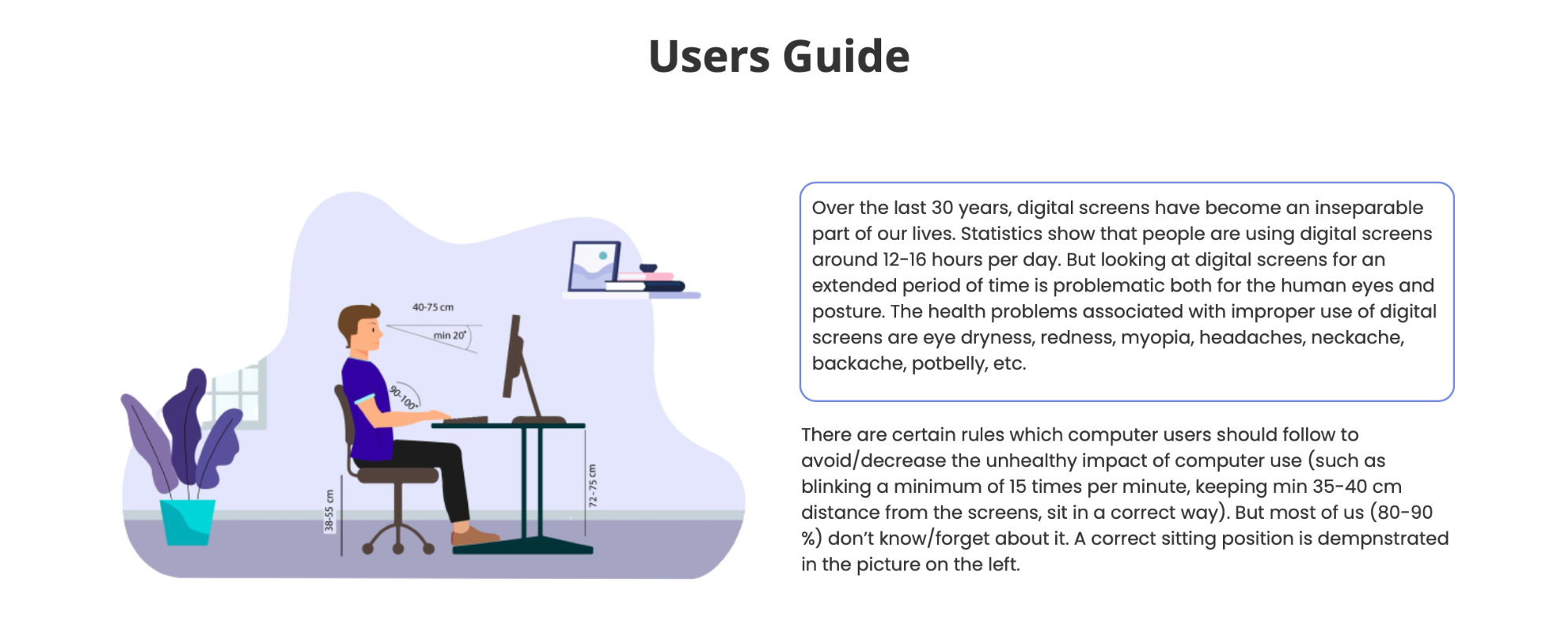
Are you feeling the weight of work-related stress bearing down on you each day? This is a common issue many professionals face. Astonishingly, 83% of U.S. workers are grappling with work-induced stress, emphasizing the urgent need for selfcare at work.
Let's consider the real-life account of SaraKay Smullens, a seasoned social worker. Despite her extensive training and dedication, she found herself faced with sheer exhaustion from continuously meeting the needs of others. Often returning home too worn out to speak, she recognized this as a common sentiment among many professionals. This feeling, she realized, is known as “burnout” and can lead to dysfunction if not addressed with adequate “self-care”.
This guide serves as your ultimate source for self-care at work. It presents strategies for maintaining a healthier work life and includes various professional self-care examples. We delve into different types of self-care and provide practical tips for work self-care. Remember, this guide is not just about surviving your workday - it's about thriving in your professional life while also safeguarding your well-being.
What Is Self-Care?
You may have often heard the term "self-care" and thought of it as just a pampering session or quiet meditation. Indeed, these are elements of self-care, but the concept is more extensive. Self-care is when someone undertakes activities or practices to promote their physical, mental, or emotional well-being. It encompasses anything that aids in maintaining and improving health, happiness, and a balanced lifestyle.
Now, if we consider self-care at work, it involves specific actions that support your well-being, ensuring you remain productive, motivated, and engaged in your job. Whether it's taking a mindful pause during a hectic day, engaging in exercises to combat the effects of prolonged sitting, or even learning to say 'no' to additional workload, self-care can manifest in many forms. Importantly, effective professional self-care can vary from person to person, given everyone's unique workplace stressors and needs.
An integral part of self-care in the workplace is understanding its role in achieving work-life balance. Incorporating self-care routines into your professional life helps you manage stress, fosters resilience, and enhances your performance, thus contributing to a more balanced and fulfilling work life. This deep exploration of self-care provides more insights on the matter.
10 Tips to Start Promoting Self-Care at Work
As we delve into the strategies for promoting self-care at work, it's crucial to remember why it's a necessity rather than a luxury. A report by Deloitte discovered that 77% of employees have experienced employee burnout at their current job, with more than half reporting more than one occurrence. The introduction of self-care practices can dramatically reduce such occurrences and enhance employee well-being. With that in mind, let's explore ten actionable tips that will help you promote self-care in the workplace effectively.
1. Ergonomics and Workspace Setup
A key component of self-care at work revolves around ergonomics and workspace setup. An ergonomically designed workspace plays an instrumental role in preventing physical discomfort and work-related injuries, thereby promoting well-being. It's about considering the design of your workspace in a way that best suits your body's needs, from your chair's height to your monitor's position, to maintain proper posture and alignment.
Our guide on recognizing and avoiding ergonomic hazards offers actionable tips to ensure your workspace supports your body, reducing strain and fatigue. One feature of Bliink that aids in this is its ability to provide reminders to adjust posture, take breaks, or even perform short stretches—transforming the way you experience your workspace.


Moreover, an organized, clutter-free workspace can significantly enhance focus and productivity. We delve deeper into this concept in our article, Clean Desk, Clear Mind: 15 Tips on How to Organize Your Office Desk, providing you with insightful strategies to create a conducive environment for self-care in the workplace.
2. Nutrition and Hydration
The role of a balanced diet and regular fluid intake in our productivity cannot be overstated. Our day's start, or breakfast, has a significant impact on our energy levels and concentration. Therefore, it's essential to kickstart the day with an adequately nutritious meal.
When it comes to lunch, the environment and timing also matter. Encouraging employees to have their meals away from their desks can enhance digestion and absorption, leading to satiety for more extended periods.
Snacking smart is another crucial element of nutrition at work. Opt for brain-boosting foods like nuts, dark chocolate, and whole grains to maintain energy levels throughout the day.
Keeping yourself hydrated is another key to staying alert and warding off fatigue. Aim for at least 6-8 glasses of water daily, supplemented with other healthy options like low-fat milk and sugar-free drinks.
Employers play an essential part in promoting healthy habits by:
- Offering free fruit bowls in common areas
- Ensuring healthy and balanced options in canteens
- Allowing enough time for meals
- Installing water machines
- Providing water bottles
- Delivering tailored health and wellbeing advice
3. Regular Movement and Exercise
Integrating physical activity into your daily routine is a cornerstone of professional self-care. Regular movement boosts energy, improves mood, and can even enhance cognitive function, making it a vital element of self-care at work.
For those of us confined to a desk, there are a range of exercises and stretches specifically designed to combat the negative effects of prolonged sitting. Whether it's a neck stretch, a torso twist, or a seated leg raise, these simple movements can make a world of difference. You can explore some easy-to-follow office desk exercises for an active workday.
To incorporate regular movement into your schedule, Bliink can be your handy assistant. The platform offers customizable alerts to remind you when it's time to stand, stretch, or take a quick walk. Remember, even small movement breaks throughout the day can add up to significant benefits for your overall health and productivity.


4. Managing Work-Related Anxiety
Recognizing and managing work-related anxiety is a crucial part of self-care in the workplace. Symptoms of work-induced anxiety can range from excessive worry about work tasks to feelings of restlessness or fatigue, difficulty concentrating, or even physical symptoms such as headaches or muscle tension.
Strategies to reduce anxiety levels could include practicing mindfulness or deep-breathing exercises, setting realistic goals and priorities, taking regular breaks, or even changing your environment for a while. It's also essential to reach out and seek support when needed. Having open conversations with colleagues or supervisors can go a long way in mitigating stress and fostering a supportive workplace.
Further resources, such as our blog posts on strategies for preventing work burnout and practical methods for enhancing employee satisfaction, can provide additional insights into tackling work-related anxiety. Remember, prioritizing your mental health is not a luxury, but a necessity for professional self-care.
5. Boundaries and Time Management
Implementing clear boundaries and effective time management can greatly improve your work-life balance and reduce stress. It's important to learn to prioritize tasks effectively and remember that it's okay to say "no" when your plate is already full. Acknowledging your workload capacity is crucial to maintain a balanced pace and meet important deadlines.
Maximizing productivity during your work hours involves strategic planning. One method is to introduce pauses into your workday, allowing for better thought processing and work habits. Respect for personal time boundaries is also essential, especially in multinational companies where different time zones come into play. It's important to ensure that no one is overextending their workday to meet cross-time zone demands.
Finally, flexibility around and during the workday can significantly reduce stress. Knowing that you can take a break to attend to personal matters without causing anxiety makes for a healthier work environment. Setting clear boundaries and managing your time effectively are essential strategies for promoting self-care at work.
6. Prioritizing Good Sleep


Quality sleep is an essential, yet often overlooked, component of self-care. Adequate sleep enhances cognitive function, mood stability, and overall health. The American Academy of Sleep Medicine recommends adults should aim for 7 or more hours of sleep per night. Ignoring these guidelines can lead to sleep deprivation, resulting in decreased productivity, mood swings, and compromised immune function.
Creating a sleep-friendly environment is key to achieving quality sleep. Here are a few tips:
- Maintain a consistent sleep schedule, even on weekends.
- Make your bedroom a serene, relaxing space with comfortable bedding and minimal noise.
- Limit exposure to screens before bedtime as the blue light can interfere with your natural sleep cycle.
- Try relaxation techniques such as deep breathing or mindfulness exercises before bed.
7. Work Socialization
Building positive relationships at work is an essential aspect of self-care. Engaging with colleagues not only cultivates a supportive environment but also contributes to your sense of well-being. Casual chats during coffee breaks, team lunches, or virtual hangouts can enhance your connections and contribute to a more enjoyable work experience.
Furthermore, participating in team-building activities or self-care exercises for groups strengthens bonds between colleagues. These activities can vary from group projects to fun office games, or even an occasional outing. Such interactions allow employees to appreciate each other's skills and personalities, fostering mutual respect and teamwork.
Fostering workplace socialization can break up the monotony of the day, making the work environment more enjoyable and productive. It's an effortless, yet impactful way of promoting self-care at work while nurturing a cohesive and dynamic team.
8. Delegate and Seek Help
Delegation is a crucial self-care practice at work. It not only helps manage workload effectively but also allows for a more balanced distribution of tasks, reducing the risk of overworking. Skillful delegation can lead to increased productivity, giving you space to focus on tasks that are within your core competencies, while your colleagues or subordinates handle other tasks based on their strengths.
In addition to delegation, seeking help when facing challenging tasks or complex problems encourages a collaborative work culture. Collaborative problem-solving promotes diversity in thought, which often leads to more innovative solutions. It also fosters an environment where individuals feel valued and part of a team, thus enhancing overall job satisfaction.
Practicing these behaviors can significantly improve your work self-care, promote balance, and create a healthier and more cooperative work environment. Remember, no one is an island—support from colleagues is crucial for achieving common goals and maintaining personal well-being.
9. Set Realistic Goals


In the context of self-care, setting realistic goals is essential to prevent feelings of overwhelm and foster a sense of achievement. Implementing SMART goals - Specific, Measurable, Achievable, Relevant, and Time-bound - can be an effective approach to objective setting.
Specific goals provide a clear direction, while measurable aspects allow you to track progress. Goals should be achievable, preventing undue stress, and relevant to ensure alignment with broader objectives. Lastly, adding a time-bound element creates a sense of urgency, aiding in maintaining focus and motivation.
By setting SMART goals, you can create a roadmap to success without overburdening yourself. This method helps in managing expectations, reducing anxiety, and promoting a more balanced and productive work environment. It's about working smarter, not harder, to promote work self-care.
10. Embrace Work-Life Blend
Transitioning from the conventional idea of work-life balance, embracing a work-life blend may foster a more holistic approach to work self-care. This model encourages integrating enjoyable personal activities into your workday, transforming the way we perceive and experience our job.
Consider listening to your favorite music while working or taking short breaks to engage in a hobby, such as sketching or reading a chapter of a book. These activities can recharge your mind, boost your mood, and enhance overall productivity. A work-life blend doesn't enforce a rigid boundary between work and personal life but allows them to coexist harmoniously, improving well-being and job satisfaction. As work dynamics evolve, adapting to a blended approach can be a healthy change promoting self-care at work.
The Bottom Line
Promoting self-care for employees isn't solely about immediate productivity—it's also an investment in the long-term wellness and satisfaction of your team. Focusing on elements such as ergonomics, nutrition, exercise, anxiety management, boundaries, quality sleep, socialization, and realistic goal setting forms a robust foundation for personal well-being at work.
Remember, it's vital to work on yourself, integrating self-care into your professional life. This isn't just about career progression; it's about prioritizing your well-being, too. By endorsing these elements of self-care, employers can boost morale, productivity, and overall job satisfaction.
Bliink is here to assist you on this journey, providing tools and insights to enhance your self-care regime at work. Start embracing self-care today and witness its transformative impact on your professional and personal life.
